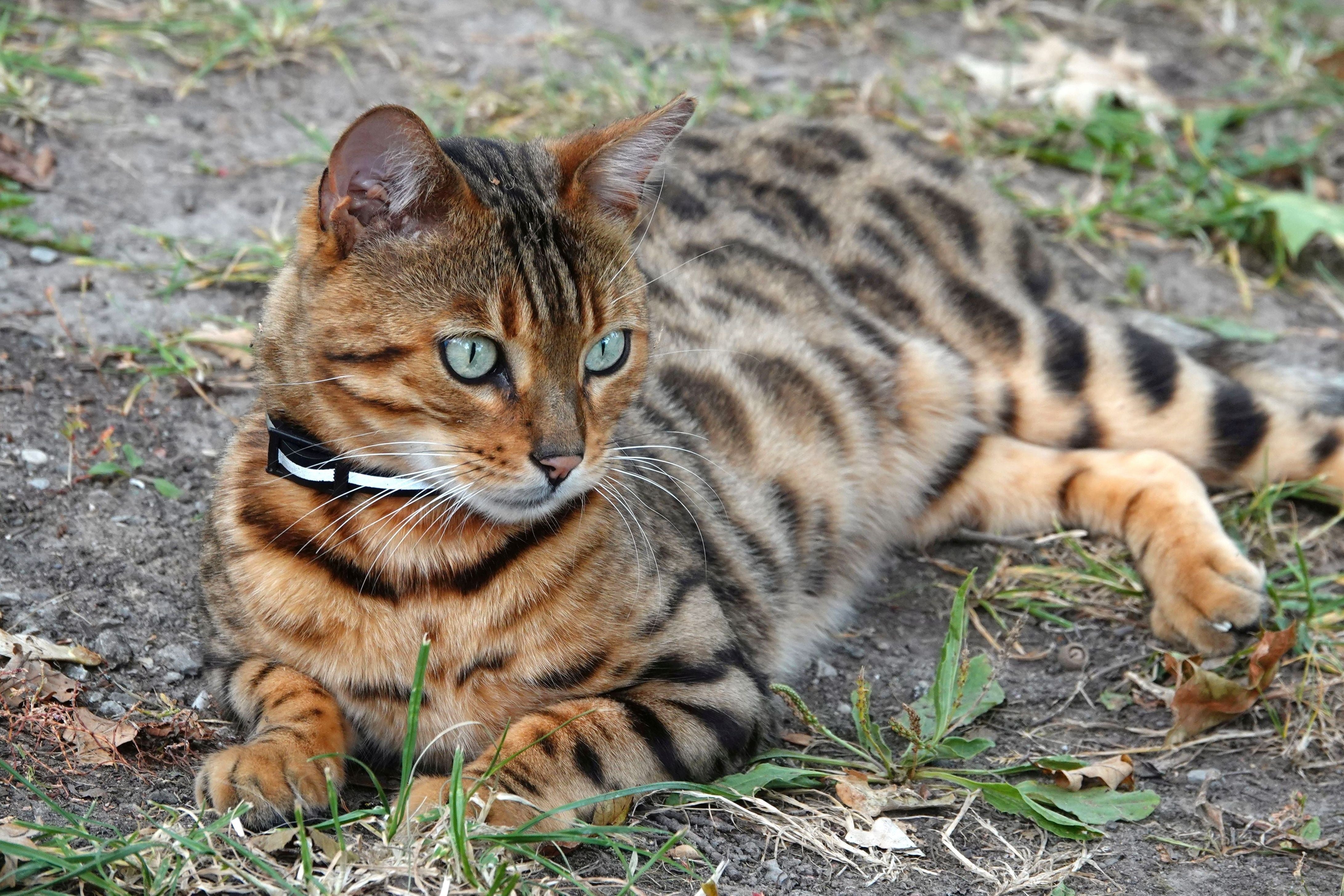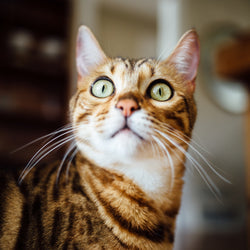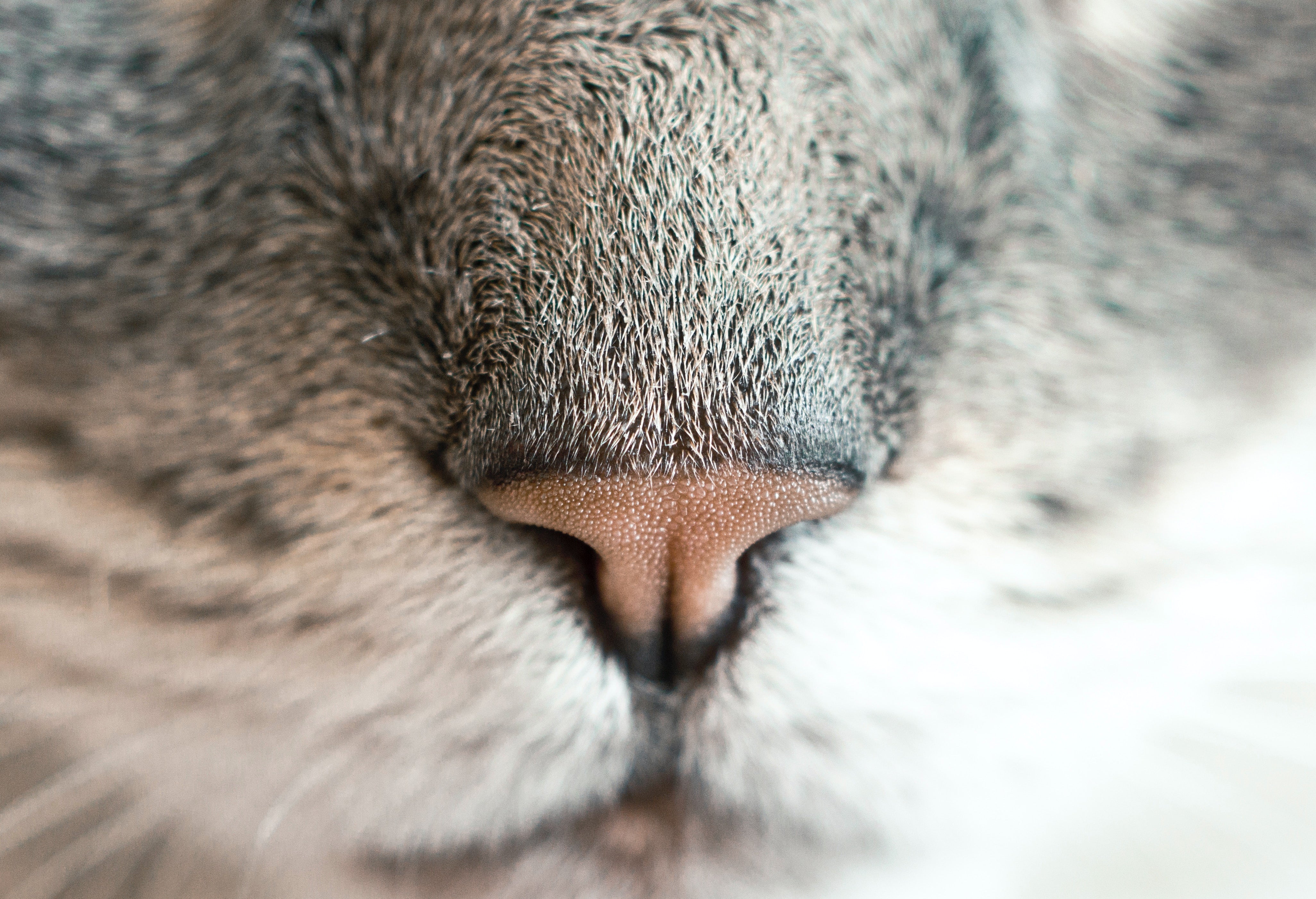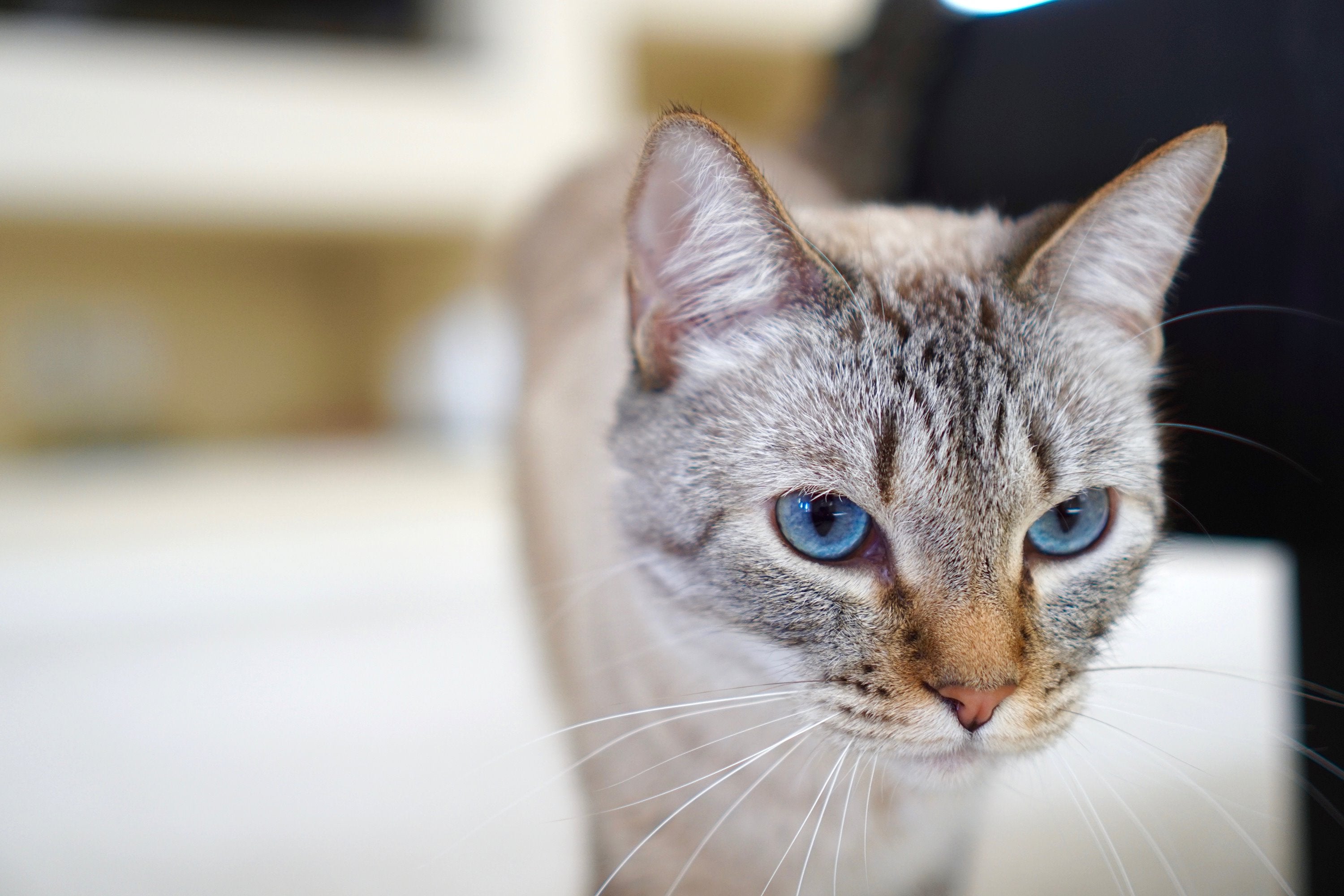
Why should you test for HCM, PKD, BPA, rdAC, FIV, and FeLV?
Bengal cats, like any breed of cat, can be susceptible to certain genetic conditions and diseases. Regular health screenings, including tests for HCM, PKD, BPA, rdAC, FIV, and FeLV, are therefore critical to ensure the health and longevity of the cat. Below, I explain why it's important to test for each of these:
1. **HCM (Hypertrophic Cardiomyopathy)**: This is a heart disease that results in the thickening of the heart muscle. It can lead to congestive heart failure, arrhythmias, and other serious complications. In Bengals, HCM can be hereditary, which makes it even more important to check for. Early detection through regular ultrasounds can lead to treatments that slow down the progression of the disease, potentially saving the cat's life.
2. **PKD (Polycystic Kidney Disease)**: This is a genetic disorder that results in the growth of numerous cysts in the kidneys. Over time, these cysts can lead to kidney failure. Though PKD is more common in breeds like Persians and Exotic Shorthairs, all cats should be tested to rule out this potentially life-threatening condition. Again, early detection can result in management strategies that slow down the progression of the disease.
3. **BPA (Bengal Progressive Atrophy)**: Also known as PRA-b, this is an inherited eye disorder specific to Bengal cats that leads to progressive blindness. Early detection can help owners manage the condition and make necessary lifestyle adjustments for their cat.
4. **rdAC (Rod-Cone Degeneration)**: This is another inherited retinal disorder causing progressive retinal atrophy (PRA), which eventually leads to blindness. While less common than BPA in Bengal cats, it's still crucial to test for this condition, as early detection can help in better managing the disease's progression.
5. **FIV (Feline Immunodeficiency Virus)**: This virus is similar to HIV in humans and leads to a weakening of the cat's immune system over time. Cats with FIV are more prone to infections and other diseases. It's important to test for this disease, particularly in cats that go outdoors or live with other cats, as FIV is spread primarily through deep bite wounds.
6. **FeLV (Feline Leukemia Virus)**: This virus is a serious infectious disease in cats that can suppress the immune system and cause cancer. It is spread from cat to cat through saliva, blood, and to some extent, urine and feces. Kittens can contract the disease in utero or through an infected mother's milk. Cats with outdoor access or living in multi-cat households have a higher risk for FeLV.
Regular veterinary check-ups and health screenings for these diseases can help ensure your Bengal cat lives a long and healthy life. If your cat tests positive for any of these conditions, your vet can provide guidance on the next steps and potential treatment options.
1. **HCM (Hypertrophic Cardiomyopathy)**: This is a heart disease that results in the thickening of the heart muscle. It can lead to congestive heart failure, arrhythmias, and other serious complications. In Bengals, HCM can be hereditary, which makes it even more important to check for. Early detection through regular ultrasounds can lead to treatments that slow down the progression of the disease, potentially saving the cat's life.
2. **PKD (Polycystic Kidney Disease)**: This is a genetic disorder that results in the growth of numerous cysts in the kidneys. Over time, these cysts can lead to kidney failure. Though PKD is more common in breeds like Persians and Exotic Shorthairs, all cats should be tested to rule out this potentially life-threatening condition. Again, early detection can result in management strategies that slow down the progression of the disease.
3. **BPA (Bengal Progressive Atrophy)**: Also known as PRA-b, this is an inherited eye disorder specific to Bengal cats that leads to progressive blindness. Early detection can help owners manage the condition and make necessary lifestyle adjustments for their cat.
4. **rdAC (Rod-Cone Degeneration)**: This is another inherited retinal disorder causing progressive retinal atrophy (PRA), which eventually leads to blindness. While less common than BPA in Bengal cats, it's still crucial to test for this condition, as early detection can help in better managing the disease's progression.
5. **FIV (Feline Immunodeficiency Virus)**: This virus is similar to HIV in humans and leads to a weakening of the cat's immune system over time. Cats with FIV are more prone to infections and other diseases. It's important to test for this disease, particularly in cats that go outdoors or live with other cats, as FIV is spread primarily through deep bite wounds.
6. **FeLV (Feline Leukemia Virus)**: This virus is a serious infectious disease in cats that can suppress the immune system and cause cancer. It is spread from cat to cat through saliva, blood, and to some extent, urine and feces. Kittens can contract the disease in utero or through an infected mother's milk. Cats with outdoor access or living in multi-cat households have a higher risk for FeLV.
Regular veterinary check-ups and health screenings for these diseases can help ensure your Bengal cat lives a long and healthy life. If your cat tests positive for any of these conditions, your vet can provide guidance on the next steps and potential treatment options.




Leave a comment
This site is protected by hCaptcha and the hCaptcha Privacy Policy and Terms of Service apply.